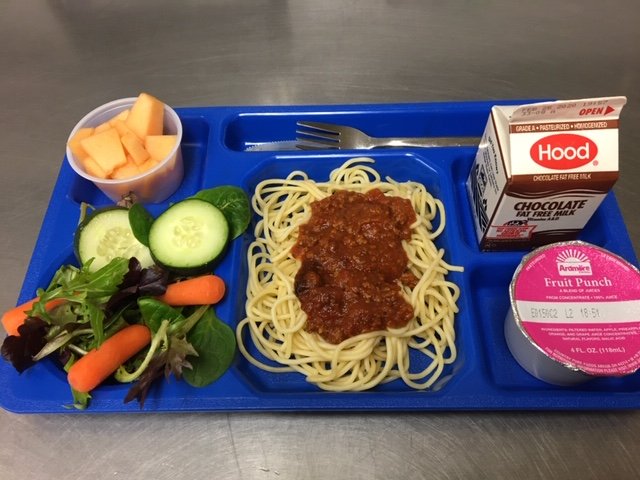We saw that this year meals in the Essex Westford School district are free for all students 18 and under. How has this impacted your meal program?
This was through USDA waivers. With the help of these waivers, we have been able to put more focus and resources back into our meal program and we’ve seen that on average 67% more students are choosing school meals. That’s significantly more engagement and more bellies full with high quality and nutritious foods.
Additionally, Scott Fay, Senior Child Nutrition Manager, and Andrew Peet, Child Nutrition Site Manager, really wanted to work with Food Connects because of the Vermont Local Purchasing Incentive. Both this incentive and the USDA waiver put more funds back into the program and the food we provide, which allows us to get higher quality products.
How has this benefitted your students?
The students are able to access more food through the school. The more nutritious food the kids eat, the more they are ready to learn and be active throughout the day. There is already lots of positive feedback about the meals we serve—the students and staff are excited about the fresh, local food they are getting each day.
Anything else that you would like to share?
This year we have tried to revamp the menu, with the hope that it will bring in more participation and therefore revenue for the program. This includes more scratch cooking with fresh, whole produce and ingredients and so far, we are getting lots of positive feedback from changes especially when we can serve foods like Shepherd’s pie using beef from Boyden Farm. It has definitely been a process doing it on a large scale and district-wide but we have an amazing team and we’ve been working out all the details with staff over the years. We’re very excited about all the new menu changes.
Additionally, we have a Farm to School program and have done cooking activities with students and taste tests in the past. Most of that has put that on hold due to COVID-19 but we have started small again by doing more school-wide taste tests with the younger students. Our hope is that we can do these taste tests to gather feedback from students and update our menu with their input. We are also looking forward to the possibility of incorporating more Farm to School and nutrition content into the curriculum.













